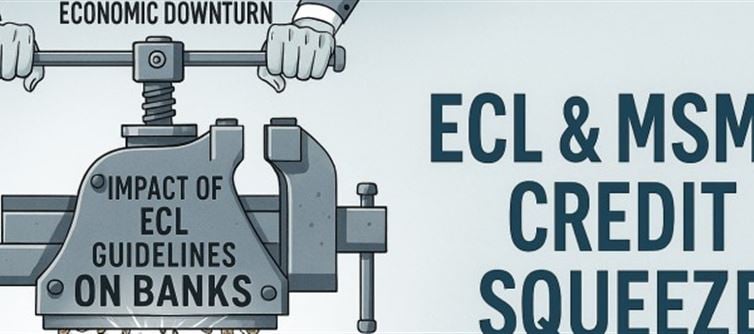
New RBI ECL Framework – A Double-Edged Sword for MSME Lending
The Reserve bank of India’s introduction of the Expected Credit Loss (ECL) framework marks a significant shift in the way banks recognize risk and provision loans. While this reform aligns india with global Basel norms, it also raises critical concerns about its impact on credit flow to smaller businesses.
Under the new framework, higher Probability of Default (PD) estimates and data-intensive modeling may increase capital requirements for banks lending to MSMEs, unrated firms, and unincorporated businesses. This could lead to tighter credit availability for some of the most vulnerable yet growth-critical segments of the economy.
My latest analysis examines the policy implications, systemic challenges, and practical reforms that could help balance prudence with inclusion. Key recommendations include:
Phased implementation to allow smoother adoption.
Differentiated thresholds for MSMEs to avoid unnecessary credit squeeze.
Improved access to borrower data to enable accurate risk assessment.
The move is a double-edged sword — it strengthens risk management but also poses potential hurdles for smaller borrowers, highlighting the need for careful calibration of policies.
New RBI ECL Framework – A Double-Edged Sword for MSME Lending
#RBI #ECL #MSME #BankingReforms #CreditFlow #RiskManagement #FinancialInclusion #PolicyAnalysis #CreditRisk #VikasItBharat #AmritKaala #CorporateLending #CGTSME #Unemployment




 click and follow Indiaherald WhatsApp channel
click and follow Indiaherald WhatsApp channel